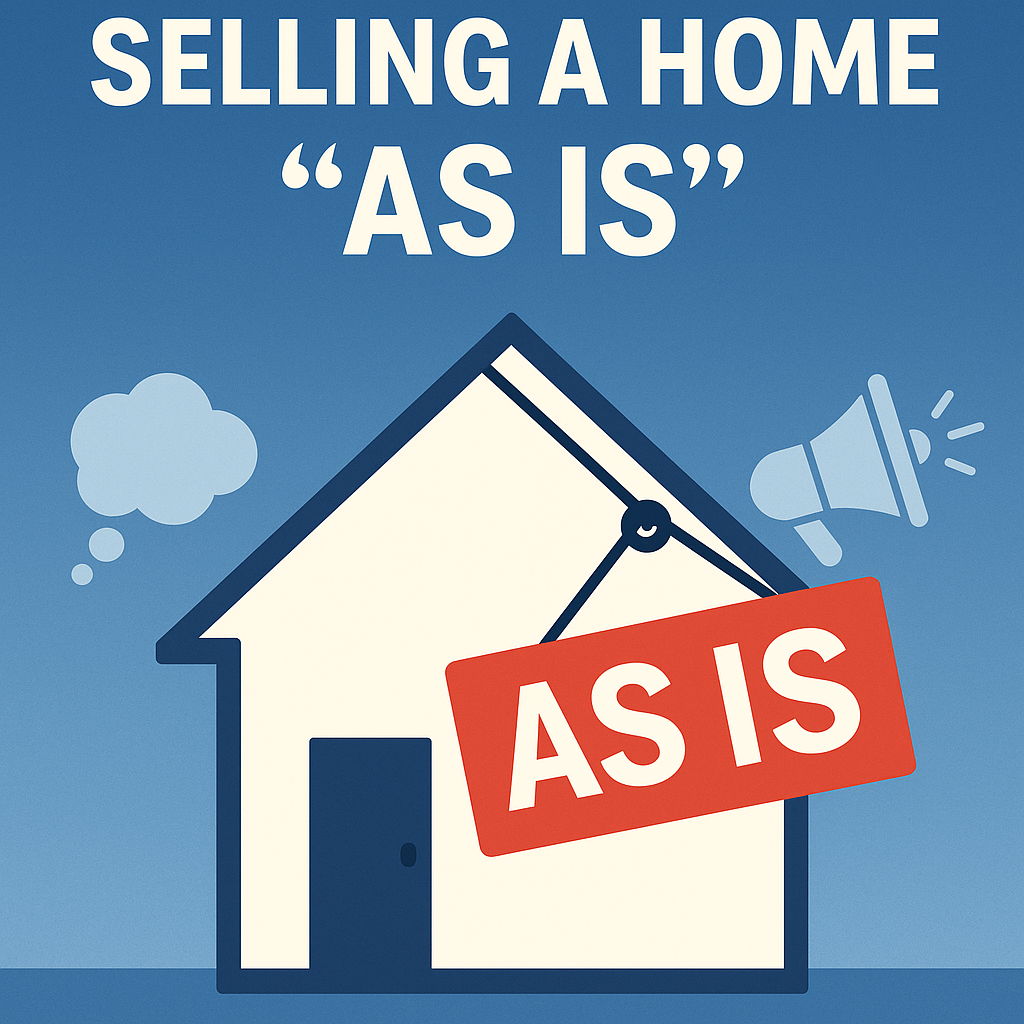Categories
Real Estate Tips, Home Selling Strategies, Home Selling Tips, Home Seller TipsPublished September 5, 2025
Selling a Home “As Is”: What It Really Means and How to Handle It

When sellers say they want to sell their home “as is,” it usually comes from a simple place: they don’t want to spend time or money fixing it up. But in real estate, the phrase “as is” can mean very different things depending on who’s hearing it. And that misunderstanding often costs sellers money—and leaves buyers and agents confused.
So let’s clear up what “as is” really means, why it matters, and how smart marketing can protect everyone’s best interests.
What “As Is” Actually Means
In most states, every property is technically sold “as is.” Buyers still have the right to inspect, but contracts already say the seller doesn’t have to fix anything. So, legally speaking, you don’t have to advertise “as is” for it to be true.
Where things get tricky is in the marketing. Putting “as is” in a listing can act like a warning sign to buyers. Many will assume the home has major problems, or that the seller isn’t willing to negotiate at all. That shrinks the buyer pool before anyone even walks through the door.
The Problem With “As Is” Marketing
Real estate is about inviting buyers into the process. If your listing sends out the wrong signal, fewer buyers show up. Fewer buyers = fewer offers. And fewer offers usually = less money in the seller’s pocket.
It’s not that you can’t sell a home “as is.” It’s that advertising it that way often works against the seller’s goals of a smooth, profitable sale.
How Agents Should Handle the “As Is” Objection
When a seller says they want to sell “as is,” good agents don’t argue. They clarify. A simple response like:
“I hear you. When you say as is, do you mean avoiding major repairs, or no work at all?”
This opens up the conversation and gives the seller room to explain. From there, an agent can educate:
-
Every home is already “as is.”
-
The real issue is how we market it.
-
More buyers = more competition = better offers.
The script isn’t about saying no to the seller—it’s about reframing the conversation so they understand the trade-offs.
Why This Matters for Buyers Too
If you’re a buyer, don’t assume “as is” means disaster. Sometimes it just means the seller wants a clean deal. Other times, it means opportunity—since other buyers may shy away, leaving less competition for you.
For Agents: Turning Objections Into Leverage
Handling “as is” objections is one of the best examples of why professional real estate representation matters. A seasoned agent knows how to:
-
Keep the seller’s stress low
-
Keep buyers from getting scared off
-
Position the property for maximum equity
This is exactly the kind of nuance that separates a smooth, profitable sale from a frustrating one.
Wrapping It Up
“As is” is not a rule—it’s an invitation. If you advertise it the wrong way, you close doors. If you position it the right way, you keep options open and maximize leverage.





